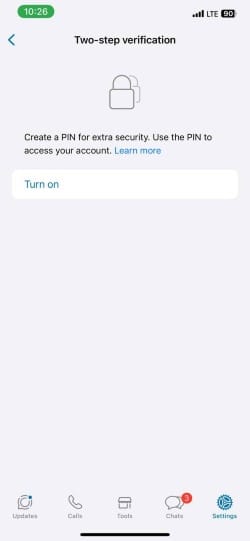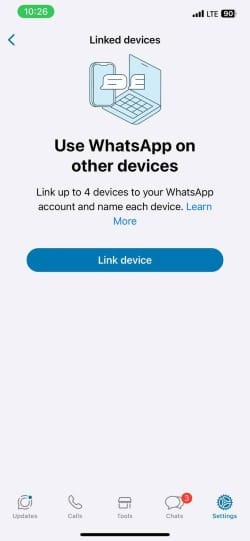WhatsApp Desktop Exploit: Protect Your Account Now!
Discover the critical WhatsApp Desktop exploit targeting Windows users, allowing hackers to bypass security and control accounts. Learn how to protect your privacy with essential security tips in this urgent guide.

As a cybersecurity expert, I've been getting a lot of messages from friends, family, and clients, all worried about their WhatsApp accounts being mysteriously logged out or, even worse, possibly hacked. Some even discovered unknown active sessions on their accounts. With so many people experiencing the same issue, I decided to dig deeper to find out what's really going on—and after some research, I found the answer.
A newly discovered critical exploit targeting WhatsApp Desktop users has surfaced, allowing attackers to hijack session information and gain full access to WhatsApp accounts. This vulnerability exposes users to high-security risks, and it requires immediate attention from WhatsApp users, particularly those who use the desktop version on Windows systems.
In this article, I will explain what the exploit is, how it works, and most importantly, provide essential tips to protect your WhatsApp account from being hacked.
WhatsApp Desktop Exploit
Platform: Windows (affecting users who installed WhatsApp Desktop)
Category: Remote Exploits
Risk Level: Critical
How It Works
This exploit works by targeting WhatsApp Desktop users, giving attackers full access to the victim’s account by exploiting vulnerabilities in the desktop version. Once this vulnerability is successfully exploited, attackers can access conversations, send messages, and manipulate account data remotely.
The vulnerability specifically targets the session handling mechanism in WhatsApp Desktop, potentially allowing attackers to inject malicious payloads that could hijack the active session.
Session hijacking
As you know, WhatsApp doesn’t use a traditional password system. Instead, it uses your phone number and a verification code sent via SMS to log you in.
When using WhatsApp on your desktop, you initially scan a QR code with the mobile app, which links your desktop session to your phone. This process grants your desktop application a temporary security token which it uses to maintain your session, allowing you to send and receive messages on your computer as if you were using your phone.
In this exploit, if an attacker manages to hijack this session, they can access your messages and impersonate you, sending messages from your account.
No SMS or two-factor authentication needed
The attacker doesn't need your login credentials or your two-factor authentication (2FA) code. They can simply exploit the session hijacking vulnerability and take control of the account.
This vulnerability is especially concerning because most exploits can't get past security measures like two-factor authentication (2FA). However, this one does.
In other words, no matter what security steps you take, your WhatsApp account remains at risk if the attacker leverages this exploit.
Remote control
The exploit allows remote access to WhatsApp accounts, meaning an attacker doesn't need physical access to your device.
How to Protect Your WhatsApp Account
While WhatsApp has likely been alerted to this exploit, and a fix might be underway, users need to take immediate precautions.
Here are some tips to secure your WhatsApp account and minimize the risk of falling victim to such exploits:
1. Limit usage of WhatsApp desktop
The first thing you should know is that only the desktop version of WhatsApp is vulnerable to this exploit. The mobile version remains safe for now, so you can continue using it without worry.
If you don't urgently need the desktop version of WhatsApp, consider using only the mobile app. The mobile app tends to be more secure, and it minimizes exposure to desktop-based vulnerabilities.
2. Enable two-factor authentication (2FA)

Although this exploit may bypass the need for 2FA, enabling it still adds an extra layer of security.
You can enable this feature within the WhatsApp mobile app by navigating to Settings > Account > Two-step verification.
3. Disable WhatsApp Web when not in use
This will prevent session hijacking by limiting the time an attacker has to exploit the vulnerability.
4. Update WhatsApp regularly
Ensure your WhatsApp Desktop app is always updated to the latest version. Exploits like this often target outdated software with unpatched vulnerabilities. You can manually check for updates or enable automatic updates on your Windows system.
5. Monitor Account Activity

Regularly review this list by going to Settings > Linked devices in the mobile app and sign out of any unfamiliar sessions immediately.
FAQs
What is WhatsApp Desktop Exploit?
WhatsApp Desktop Exploit targets WhatsApp Desktop, allowing attackers to take full control of the victim’s account. Once exploited, they can access chats, send messages, and change account data remotely.
How to protect my account from WhatsApp Desktop exploit?
First, log out from WhatsApp Desktop on Windows. Then, activate two-factor authentication (2FA) and check for any unknown active sessions in your WhatsApp account.
Does WhatsApp Desktop Exploit affect WhatsApp mobile?
No, the WhatsApp Desktop Exploit only affects users who are using WhatsApp on Windows.
Is my WhatsApp safe when I use 2FA?
Activating 2FA generally makes your WhatsApp account safer, but the WhatsApp Desktop exploit can still compromise your account even with 2FA enabled.
Final Thoughts
The WhatsApp Desktop (Session Hijacking) exploit serves as a stark reminder that no platform is completely secure. Regular updates, strong security practices, and vigilance are crucial to keeping your personal and business communications safe. While WhatsApp has been a reliable messaging platform, users must stay informed about potential vulnerabilities and proactively protect their accounts.
If you're using WhatsApp Desktop, now is the time to take these steps to protect your account.
Keep an eye out for further updates from WhatsApp regarding security patches for this exploit and always practice good cybersecurity hygiene.
Help us understand your concerns and experiences with WhatsApp's security by taking part in our survey. Your feedback is vital in helping to enhance user safety.



